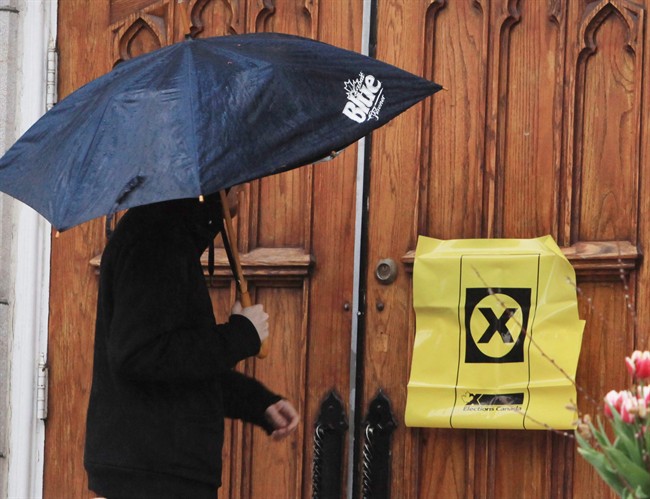While voter turnout in the October 2015 federal election rose to its highest level in decades, Canadians cited “not being interested in politics” as the single largest reason for not casting a ballot, according to new numbers from Statistics Canada.

The numbers show one in three non-voters, or 32 per cent, reported a lack of interest in politics as being the main reason for not voting.
READ MORE: Voter turnout highest in decades
The new StatsCan data found this was true among all age groups from 18 to 64. Canadian-born citizens were most likely to report a lack of interest in politics – 34 per cent – as a reason for not voting, compared with 25 per cent of immigrants with citizenship who had been in Canada for more than 10 years.
“Everyday life or health reasons” were cited by almost half of non-voters, 48 per cent, as a cause for not voting with people either too busy (23 per cent) or out of town (12 per cent). Illness or disability was cited as an excuse for not voting by 12 per cent.
Across the country, Ontarians (25 per cent), Manitobans (25 per cent) and Saskatchewan residents (25 per cent) were the most likely to report being too busy to vote. However, Atlantic residents in those from Newfoundland and Labrador (18 per cent) and Nova Scotia (19 per cent) were the least likely to report that reason.

Get daily National news
READ MORE: Ridings with most immigrants voted Liberal by a landslide
The reasons for not voting were also similar among eligible immigrant and First Nations voters. Forty-three per cent of First Nations people who said they did not cast a ballot, said they were not interested in politics. Nine per cent cited reasons related to the electoral process as the cause for not marking a ballot.
Immigrants who have been Canadian citizens for less than 10 years gave similar answers with 54 citing everyday life or health and 20 per cent not interested and 14 per cent citing the electoral process as a reason for not voting.
A Liberal majority government
The election saw Canadians hand Justin Trudeau and his Liberals a majority mandate, including a record 10 First Nations MPs.
The 42nd general election also saw a surge across all age groups and categories of people who said they voted, according to the new data. Seventy-seven per cent of Canadians said they had voted in the federal election compared with 70 per cent in 2011, with younger voters accounting for much of the increase.
READ MORE: Voter turnout exceptionally high among Canadian Muslims, poll finds
However, numbers from Elections Canada found just 69 per cent of Canadians cast a ballot, the highest turnout since the 1993.
Anger at the former Conservative government led by Stephen Harper fuelled higher voter turnouts among aboriginal voters, while communities with the most immigrants voted also voted overwhelmingly for the Liberals, according to Elections Canada data.








Comments